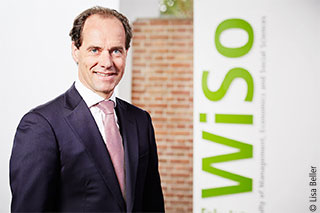Douglas was very successful with the stationary retail of premium beauty products until the 2000s. Since the advent of digital channels, however, the beauty retailer has been struggling with major disruptions in the beauty product industry. Consumer expectations, especially with regard to product variety, have increased and digital channels to facilitate the search for information about beauty products (e.g. comparison portals, online feedback, social media) and their purchase have become increasingly popular. In addition, the competitive landscape has changed significantly. New competitors have entered the German market, large cosmetics retailers from other countries, but also pure online providers.
To meet these challenges, Douglas has intensified its online activities and implemented a multi-channel strategy covering both offline and online channels. In a recent case study, WiSo professor Werner Reinartz for the Institute for Retail Research (IFH, affiliated institute of the WiSo faculty) has investigated the development.
Douglas CEO Tina Müller has set herself no less a goal than to make Douglas the number one beauty destination. In 2019, Douglas launched a platform for online booking of beauty appointments and opened its online store to selected third-party providers. The launch was not only a step into the new market of beauty services: The platforms also operate with their own business model. The new business model requires different organizational skills and a strategy to both attract sufficient users on the supply and demand side and to adapt the platforms to Douglas' positioning as a premium beauty company.
Whether it is possible to achieve Douglas' ultimate goal of becoming the number 1 beauty destination must remain open at this time, Werner Reinartz concluded. Whether the platforms would have to be further developed, how they would be positioned in relation to Douglas' existing business model and whether the establishment of these two platforms would be sufficient to transform the new business model into a sustainable new source of income, was still unclear at this stage. With the intention of the financial investor of Parfümerie Douglas GmbH to float the company on the stock exchange, Tina Müller is in any case facing increasing pressure.
